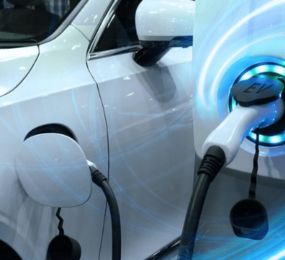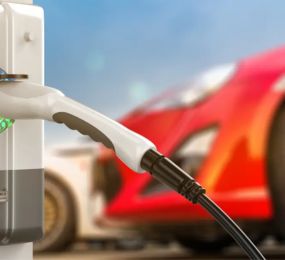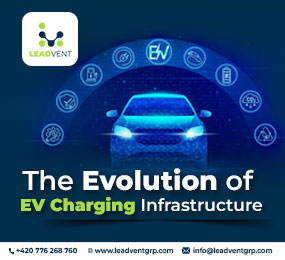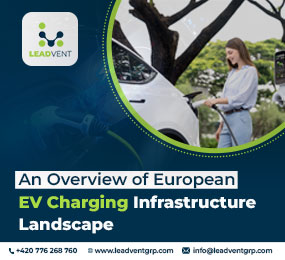As the world moves towards more sustainable transportation options, Africa stands at a pivotal moment in the evolution of electric vehicles (EVs). While the electric revolution has gained momentum in Europe, North America, and Asia, the African continent offers unique opportunities and challenges for the adoption of electric mobility.
The Growing Demand for Sustainable Transportation
The push for electric vehicles is largely driven by the need to reduce carbon emissions, combat climate change, and transition to cleaner sources of energy. In Africa, where air pollution from traditional gasoline-powered vehicles is a growing concern, EVs present an opportunity to address both environmental and public health issues.
African cities, especially in countries like Kenya, South Africa, and Morocco, are seeing increasing interest in EVs. Local governments and private enterprises are starting to invest in electric transport solutions, whether through electric buses, taxis, motorcycles, or private cars. This trend is particularly relevant as African nations work towards achieving the United Nations’ Sustainable Development Goals (SDGs), particularly SDG 13, which focuses on combating climate change and its impacts.
Opportunities for E-Mobility in Africa
- Reducing Dependence on Imported Fuels
- Job Creation and Economic Growth
- Renewable Energy Integration
A significant portion of Africa’s economic output is spent on importing petroleum-based fuels. According to the African Development Bank (AfDB), Africa spends about $40 billion annually on fuel imports, a figure that is projected to grow. By shifting to electric vehicles, Africa can decrease its reliance on fossil fuel imports and start producing homegrown solutions. With Africa’s vast renewable energy potential—from solar in the Sahara to hydroelectric power in central Africa—EVs can be powered by clean, locally produced electricity.
The rise of electric vehicles offers the chance for Africa to foster new industries, create jobs, and stimulate local economies. From manufacturing electric cars and charging infrastructure to offering new services in e-mobility, Africa’s young and entrepreneurial population could benefit from the expansion of the electric vehicle market. Moreover, the adoption of electric transport solutions could create green jobs in sectors like battery production, renewable energy, and electric vehicle servicing.
Africa has vast renewable energy resources that could be harnessed to charge EVs and power the growing fleet of electric buses, motorcycles, and cars. By integrating EVs with renewable energy sources such as solar and wind, Africa can create a truly sustainable transportation ecosystem. This approach would significantly reduce emissions and make use of abundant resources that are often underutilized.
Challenges Facing E-Mobility in Africa
While the potential is enormous, there are a number of obstacles that must be addressed for electric vehicles to thrive on the continent.
- Limited Charging Infrastructure
- High Upfront Costs
- Lack of Local Manufacturing
- Grid Reliability and Power Supply
One of the major barriers to widespread EV adoption in Africa is the lack of charging infrastructure. Unlike developed regions where charging stations are relatively widespread, Africa still faces significant gaps in its infrastructure network. Establishing a robust and accessible charging network will be essential for encouraging consumers to switch to electric vehicles. Governments, in partnership with the private sector, will need to invest in building charging stations, particularly in urban areas and along major highways.
Electric vehicles generally come with a higher upfront cost compared to conventional vehicles, largely due to the expense of lithium-ion batteries. This is a significant barrier in African markets, where purchasing power is lower. Governments and financial institutions may need to implement subsidies, tax incentives, or low-interest financing to make EVs more affordable to the average consumer.
Although several global automakers have committed to introducing EVs to Africa, the continent does not yet have widespread local manufacturing of electric vehicles. As a result, Africa relies heavily on imports, which increases costs and limits availability. Encouraging local manufacturing of EVs and related components, such as batteries, could help reduce costs, promote technological transfer, and stimulate the local economy.
Africa’s electricity grid, in many regions, is unreliable, with frequent outages and a lack of consistent power supply. Without a stable energy grid, the widespread adoption of EVs could put even more strain on power infrastructure. Addressing energy reliability and expanding access to electricity, especially in rural areas, will be critical to supporting the e-mobility revolution.
The Road Ahead: A Collaborative Effort
To overcome these challenges, African nations will need to work together, leveraging international partnerships, local expertise, and innovative technologies. Governments, NGOs, and the private sector will need to collaborate to create the right environment for electric vehicles to thrive. Policy reforms, such as incentives for electric vehicle purchases, tax exemptions for electric vehicle infrastructure, and clear emissions regulations, will be crucial in shaping a favorable market for e-mobility.
Public-private partnerships will also play a crucial role in accelerating EV adoption. Large-scale investments in battery manufacturing, charging infrastructure, and renewable energy projects can bring the necessary infrastructure to life, paving the way for an e-mobility revolution.
Conclusion
The future of electric vehicles in Africa is promising, yet complex. By addressing infrastructure deficits, reducing costs, and aligning policy with sustainability goals, Africa can take full advantage of the benefits offered by e-mobility. Not only could this shift drive environmental improvements, but it could also create new economic opportunities, transform industries, and reduce the continent’s reliance on fossil fuel imports. For Africa, the road to a sustainable, electrified future is within reach—but it will take collaboration and determination to get there.
Join the Conversation at the E-Mobility and Infrastructure Africa Summit
If you're eager to learn more about the evolving electric vehicle market in Africa, don’t miss the E-Mobility and Infrastructure Africa Summit on May 21-22, 2025. This event will bring together key stakeholders in the e-mobility and infrastructure sectors, providing an invaluable platform for networking, knowledge-sharing, and exploring the future of transportation across Africa.
Register today to secure your spot and be part of the conversation that is shaping the future of African mobility!
For full event details, visit the E-Mobility Africa page.
Interested in speaking?
If you want to participate in the conference as a speaker, please kindly contact Mark Perry at [email protected]
Don’t miss this opportunity to improve your knowledge and showcase your products directly to your target audience & leaders from innovative and forward-thinking companies in the solar energy sector.
Plan on sending a team. For maximal benefit, we highly recommend that you send a team of 3+ to attend the event. That’s why we offer group booking discounts—enquire now to find out more—available for a LIMITED TIME ONLY.
Are you ready to be a part of the event?
Save up to 50% if you book by 31sh March.
Limited sponsorship opportunities are available; contact me today at Martin Smith, [email protected] | +420 776 268 760.
For more information on delegate registration and group participation, contact us at [email protected].
Leadvent Group—Industry-Leading Events for Business Leaders!
















